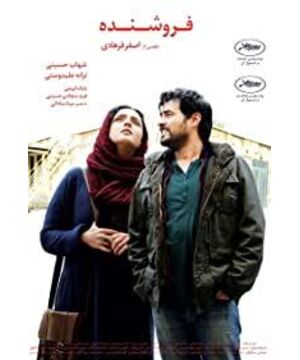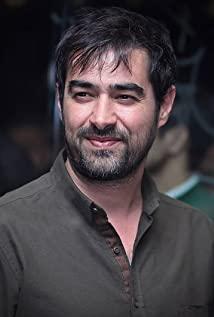At the beginning of the movie, we can see that the young couple lives an ordinary but sweet life, and can be regarded as a pair of literary youths. They've just gone through a bit of a messy move, though. Not long after moving into the new house, his wife was suddenly attacked and raped while she was taking a bath. This scene is very real. The wife was discovered by the neighbors. The husband didn't see his wife until he was in the hospital. He heard the description of the neighbors to know what happened. The next thing he faced was the traumatic wife's post-traumatic stress syndrome. (PTSD).
Let me analyze the psychology of the two. Wife, as victim, shows typical PTSD after trauma, fear of being alone (insecurity), guilt (feeling at fault for opening the door), and anger at her husband's callousness and alienation , heartbroken that life is not what it used to be.
And my husband's behavior surprised me a bit. It can be seen that Iran is a more conservative country than China. Being raped is a shame, and no one even talks about this part directly in the whole movie. It seems that everyone around the young couple knows and intentionally avoids this. The husband, on the other hand, has an anger that his interests are being hurt, and he feels ashamed of his wife (because he feels his wife is ashamed, and the shame is also his own). He expresses his strength with anger, thereby covering up behind his anger his sadness and powerlessness for not being able to accompany his wife to protect her.
And there is a law in life, avoiding pain will be more painful than the original pain. Both the husband and wife here have avoided calling the police, avoiding psychological help, and even avoiding deep communication between the two, which is bound to talk about the facts, especially the husband. On the surface, he is calm, but in private he has been chasing criminals through And revenge to divert the pain from the heart.
These are all because when he was immersed in pain, his vision was narrow, and he only saw his own pain, not his wife's bigger wound. Nor did he see the old man in the stable family of 35 years of marriage, tortured when he knew he had made a mistake. The old man said that he did not count the amount of money, because the money he gave was not a "remuneration" after careful measurement, but a willingness to compensate because of the torture of his inner conscience.
Without seeing others and being unable to connect with others, he can only fall into loneliness, and loneliness makes him fall into even more inner predicament. If he made a big mistake, the husband and wife were divorced, and he would be condemned by his conscience (at a crucial moment, he did not let the old man go and caused irreversible results). Not only did his original pain not alleviate, but it was still superimposing, and instead of helping his wife's situation, he caused her a second injury.
All because of the wrong direction.
At the moment when the old man's life was in danger, the wife jumped out of the role of the victim and helped the old man and his family, showing her sympathy and connection with others. This is the behavior of the brave, and I think she may get out of this pain faster.
Brenne Brown said in "The Power of Fragility" that courage comes from exposing one's own vulnerability and imperfection, and shame and fear will subside because of the strong connection between people. On the other hand, you can only show your kindness by holding others accountable for your actions. And in the end, it is only with courage, kindness, and connection that one can live wholeheartedly and find peace.
View more about The Salesman reviews











